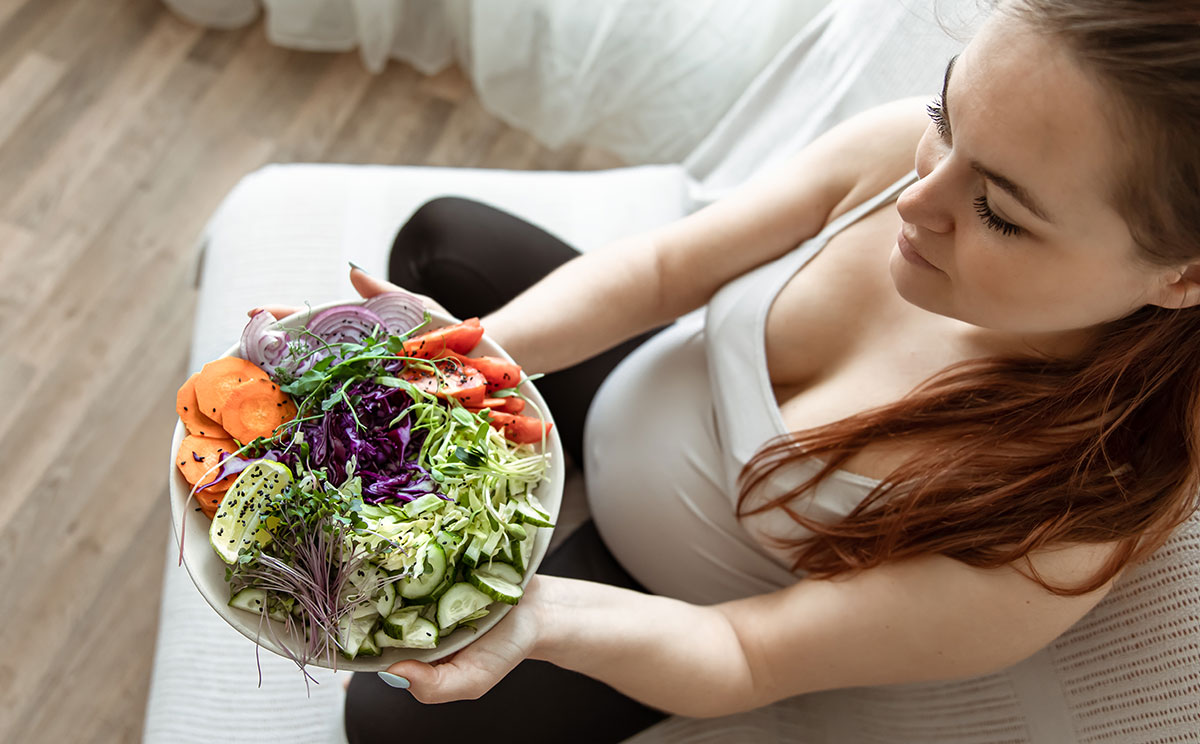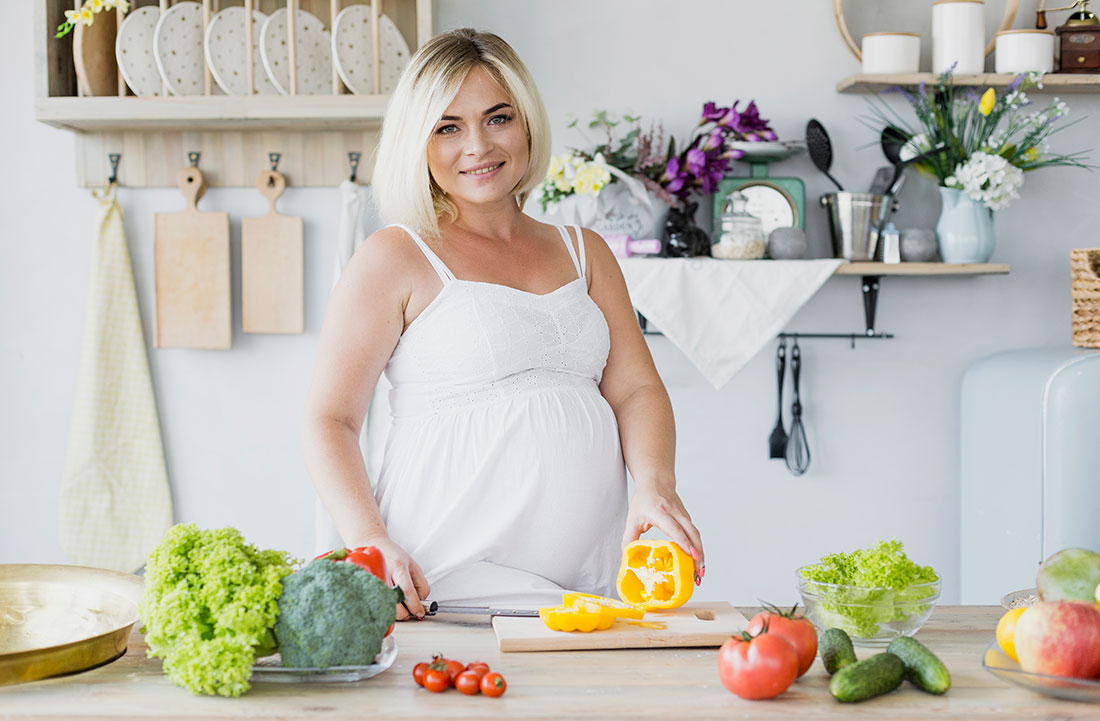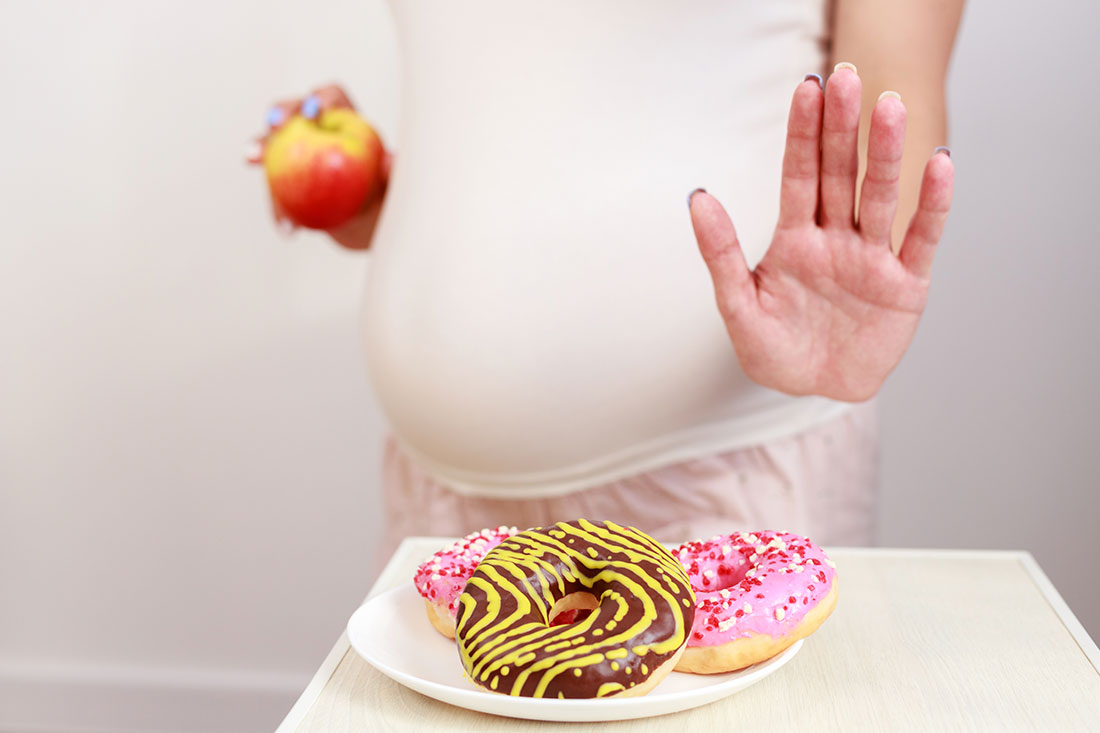
A proper diet during pregnancy supports a woman's body during this demanding period and also influences the proper development of the fetus and the baby's later life. Learn the most important principles of nutrition during pregnancy, which foods have a positive impact on us, and which foods should be avoided.
Contents:
- What changes to your diet should you make before getting pregnant?
- Why is a healthy diet so important during pregnancy?
- What are the rules of nutrition for a pregnant woman?
- What ingredients should a pregnant woman's meals contain?
- What is folic acid and why you should take it
- Should you take vitamins and supplements during pregnancy?
- What foods should you avoid during pregnancy?
How should a woman planning to get pregnant eat?
Pregnancy is a critical period in a woman's life, with a huge impact on both her health and that of her baby. Every woman knows that it's especially important to take care of her health during this period, but it's worth starting as early as the planning stage.
If you've decided to expand your family, immediately assess whether your current lifestyle will support fetal development and whether any improvements are necessary. It's a good idea to start preparing for pregnancy 3-6 months before conception.
Changes you need to make before getting pregnant:
- Completely give up nicotine if you are a smoker
- Try to eliminate alcohol completely
- If you are overweight or obese, try to implement a reducing diet - consult your doctor or dietitian to avoid nutritional deficiencies
- Consult your doctor if you should take any vitamins or supplements.
- Take care of a holistic healthy lifestyle, including healthy eating, sleep, physical activity, and avoiding stress
Start taking folic acid 6 months before you get pregnant.
Why healthy eating during pregnancy is important

During pregnancy, you should continue to follow the general principles of healthy eating. If you still haven't developed healthy habits, consult your doctor, who will provide you with the necessary advice.
Healthy eating during pregnancy is important for many reasons, including:
- supports the development of the baby and the mother's body
- leads to the "programming" of metabolic and hormonal processes in the child at the fetal stage
- does not cause excessive increase in the mother's body weight, which may translate into later struggle with obesity in both the woman and the child
Diet during pregnancy - what rules should you follow?
General tips to follow when eating during pregnancy:
- Eating five smaller meals a day, 3 main meals and 2 complementary meals
- Eating meals at fixed times - minimum breaks are 2 hours, maximum - 4 hours
- Breakfast and lunch should provide the most energy
- Drinking approximately 2-2.5 liters a day - water should be at least 1-1.5 liters a day, other permitted drinks include: teas, e.g. red tea, fruit or herbal teas (allowed for pregnant women), vegetable and fruit juices without added sugar, squeezed from fresh products
- A balanced diet rich in whole grain cereals, milk and dairy products, protein-rich products: legumes, fish, meat, eggs, vegetable fats, 500g of vegetables and 300g of fruit per day
Diet during pregnancy - how to compose meals
Meals during pregnancy should be balanced and nutritious, i.e. they should contain all the necessary macro and micronutrients in appropriate proportions:
- Complete protein
- Good fats
- Complex carbohydrates
- Vitamins
- Mineral ingredients
Complex carbohydrates should be the largest component of a pregnant woman's diet , followed by vegetables, fruit, and dairy products. Meat, fish, eggs, and other fats should be included to a slightly lesser extent.

Source of carbohydrates in the diet of a pregnant woman
To prepare a carbohydrate-rich meal, use whole-grain flour, bread, sugar-free muesli, white and whole-grain rice, groats, potatoes, and pasta. Choose whole-grain products, such as rye, wheat, graham, buckwheat, spelt, and oatmeal.
Source of protein in the pregnancy diet
The best sources of protein for pregnant women are dairy products, meat, fish, and eggs. A very important source of protein, especially for vegetarians, are legumes: beans, peas, broad beans, lentils, and chickpeas. It is recommended to obtain 60% of protein from animal products and 40% from plant products.
Diet during pregnancy and fats
Sources of unsaturated fatty acids include vegetable oils, oily fish, nuts, and seeds. Try to eat at least one oily fish a week.
How to provide vitamins and minerals to the body
To obtain essential vitamins and minerals, we need to consume at least five servings of vegetables and fruits daily. Some nutrients may require supplementation, which your doctor will advise you about based on your test results.
Vitamins and supplements
A woman's body may require additional supplementation during pregnancy. Consult with your doctor whether you should take additional vitamins and nutrients and in what doses.

Folic acid
Folic acid should be taken as early as the pregnancy planning stage, approximately three months before conception. Folic acid is vitamin B9, which participates in cell division in the developing fetus, making it crucial. Its deficiency can lead to fetal defects.
Other ingredients that may require supplementation during pregnancy include:
- Vitamin D3 - affects the child's skeletal system, supports calcium absorption
- Omega‒3 polyunsaturated fatty acids - DHA acids - essential for building tissues of mother and child
- Iodine deficiency, congenital defects, or psychomotor development disorders
- Iron - essential for the production of red blood cells, iron deficiency leads to many serious fetal disorders.
- Calcium - deficiency causes osteopenia and osteoporosis and other pregnancy disorders
- Magnesium - helps maintain normal blood pressure in pregnant women
Do not take vitamins in excessive doses, for example by taking tablets containing overlapping ingredients.
Overdosing on some supplements, such as vitamin A, can also lead to fetal defects, so consult your doctor before taking supplements.
Diet during pregnancy - what products should we exclude and avoid?
A pregnant woman is less resistant to some bacteria found in food and harmful products such as alcohol, which may cause damage to the fetus.

In particular, during pregnancy you should avoid:
- alcohol
- nicotine
- raw meat, e.g. steak tartare or Parma ham
- raw fish and seafood, e.g. sushi
- unpasteurized milk and dairy products, e.g. oscypek cheese
- blue cheeses
- fish from polluted waters, e.g. butterfish, perch, eel, roach, cod
- raw eggs, e.g. in kogel-mogel
- sweets
- carbonated drinks
- sweeteners
- fast food
During pregnancy, also limit:
- highly processed food
- fried products
- coffee
- sweets
- salt and salty products
In addition, wash and peel all vegetables and fruits with increased care.





Podziel się:
Why is time with dad important?
What is attachment parenting? Learn the most important principles.